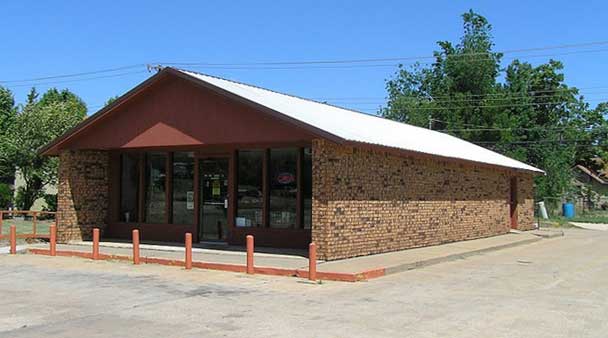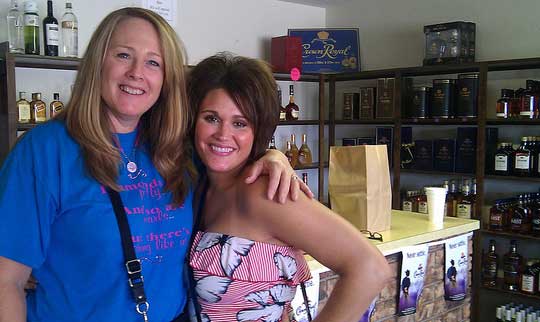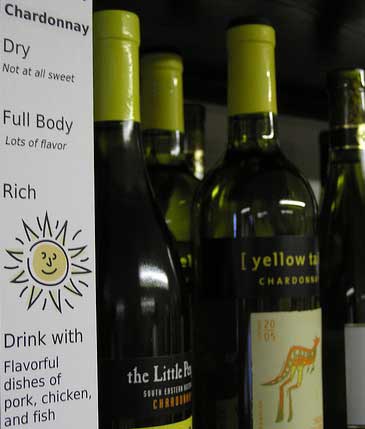I really do run a liquor store in a small town, and it really is a useful model for how all businesses could behave online.
Because my store is in a small town, I've always dealt with instant communication among my customers: If we burn one customer, he can go down to the coffee shop and spread the word all over town in short order.
Now that every business faces that same pressure online, consider how my small-town liquor store experience so clearly applies to social media.
Your customers want the "small" treatment
An American Express 2011 survey found that 75% of customers think they get better service at small businesses, and an overwhelming majority say small local businesses are key to their local economy. The conclusion: at least three-quarters of your customers want that "small business" feeling.
You can give that feeling to them, no matter your size. Social networks are the perfect place for doing so, but you have to start thinking like a small business.
Taking on a new way of thinking can seem daunting. Sitting in front of your computer, or holding your smartphone, staring at a mention from a customer, you can be at a loss for words, or unsure of your direction. What to do...?
Pretend you are the owner of a small-town store. Build a little storefront in your mind. Stock it with all the things your business sells. Put your products and services in boxes, and put the boxes on shelves. Put yourself in a storekeeper's apron, and walk right in there. Look around. Make sure it feels like a great place to shop. Keep that image firmly in your mind.

Now that you have this new imaginary store, what next?
1. Build connections
Small-town business owners spend a lot of time talking one on one with customers, building connections. In my liquor store, we talk about products. Customers ask which ones I've tried, how they taste, what they go well with, which ones to avoid. We also talk about family, work, and vacation—all those human things. Is that because we love to talk? Well, yeah, but it's also about building connections with these people who have chosen to walk in our doors.
Without a human connection, my store might as well be a vending machine.
How about your business and your imaginary store? Are you more of a vending machine right now? Maybe more of a loudspeaker blaring announcements? Then it's time to change. Spend more of your online time focused on one-on-one interaction, talking with individual potential customers, building community.
Every time you see a message from customers online, imagine that they have walked into your store. When you take such an approach, you'll never ignore a customer who's talking about you. You'll always be friendly and respond. You'll say hello, good morning, and how are you.
2. Get involved
We small-town business owners get involved in our communities, participate in community projects, and show up for events. We donate to local causes, we sponsor adult sports teams, and we give to fundraisers. We even say no to requests, and we do it politely. If you're out around town, you'll see me or the people who work with me. Laurie is involved with the schools. Beth's in the garden club. Strick is in the college band.
You can get involved online, too. You're the store owner now, so you're part of the community around you. Show up for online events like webinars and Twitter chats. Participate in community projects like fundraisers and group writing projects. Be part of what's going on. Don't just make a donation to a cause and then slap a banner ad on your website.
Get involved. Share what you do. Share information about your causes online. Give the organizations you support a chance to in turn share about you.
3. Think long-term
Small-town business owners stay for the long-term. They get to know everyone in town, sometimes for generations. My store has been in my family for over 20 years now. People expect that we'll know their friends and that we'll be able to recommend gifts. The women's group wants us to remember which wines they get for their annual event, so we keep track for them.
The old way of behaving online might have been to hit and run, dropping an ad on a network and never returning or never interacting. But think about building your "storefront" for the long-term. Pick a small number of networks, maybe even just one, so you can focus on meeting the people there and getting to know the community online.
When the next new shiny network tops 10 million users, think carefully before you open a branch there. Do you have enough people to work the counter there, too? Can you offer something new or different in that network? How will you maintain your existing stores while getting the new one going?
4. Be honest
Small-town business owners are honest. If you drop a $20 bill in my store, we'll return it to you. In small towns, we have a saying, "If you don't want your grandmother to read it on the front page of the newspaper, then don't do it."
As a marketer, you might be tempted to shade the truth sometimes, or hide behind the anonymity of a company twitter account. But you won't be tempted if you remember to be the shopkeeper who's standing in the middle of your own store. You'll presume any dishonesty will be found out, just like it would be in a small town, and you'll do the right thing.
5. Be helpful
Small-town business owners are helpful. We'll carry your purchases to your car, keep the items you like as a special favor, and special-order anything we can get for you. If we can't help a customer, we're happy to give directions to the other liquor store in town. I've seen other local businesses go so far as offering to take in competitors who lost their building in a fire.
You can benefit from a helpful attitude online. Answer questions and share useful information. You don't have to give away your work for free, but you can always have a helpful attitude. In a big business there may be "room to hide," as a corporate friend has said. But if you remember that you're really running a small store, you'll remember that hiding isn't helping.
If you hear of a job opportunity, pass the opportunity along. Did you turn down potential clients who aren't a good match for you? See whether you can make a match for them from within your network.
Take on the needs of your community. Share community stories through your social channels. Imagine that these people are your neighbors.
6. Focus on individual customers
If I only watched the numbers of customers we can draw, I'd move. With only 5,000 people living in town, I could find a lot more customers in a big urban area. But I stay, and I think it's worth it. In my small town, I have the chance to make a difference, to connect with people individually, and to know that my store matters.

Some marketers are just watching the numbers of followers, the number of "likes." They see the millions of people on Pinterest and think it's time to move there. But that's the old way of thinking, the way of mass marketing. You're building a little store now. You are focusing on individual customers.
The one person who walked through your doors today is worth much more to you than any number of people who aren't interested in you and your wares.
7. Be authentic
I run a liquor store in Oklahoma. No point in pretending to be sommeliers, speaking in French accents, or using fancy words to describe our wines. We use our Okie accents. We speak the language our customers know when we describe a wine. We listen to what they want.
In your imaginary store, remember who you really are. No point in using corporate-speak, putting on airs of extra formality, or using legalistic talk. Use your human accent. Speak the language your customers know. Talk about your product like a real person would. Listen to what they want and how they want it, and respond accordingly.
8. Let customers learn their way
We know our customers like to learn in different ways. So we offer to help everyone personally.
We ask predictive questions. For example, to find out how dry of a wine they may like, we ask, "Do you sweeten your iced tea?" If they don't, they probably can take a drier wine. And that's much less intimidating than, "Do you like dry wine?" for someone who doesn't know what "dry" means in wine.
If they want to look around on their own, we let them. We can do that because we have a description posted next to each variety of wine. The descriptions are written in terms that wine lovers will understand, but we explain those terms on each sign so anyone can understand them. We use pictures to make it easier to imagine how a wine tastes: Chardonnay is "rich" and it has a bright sun image; moscato is "luscious" and comes with images of candy.

How is your little store on letting customers learn their own way? Do you know some predictive questions that can help guide your customers to choose the right product for them? Is your main website full of self-service information at least as accessible as my wines? Do you use words, pictures, and video? Do you define your terms on each and every page?




